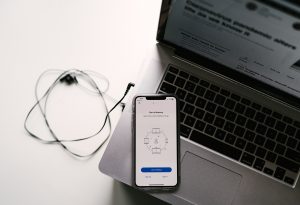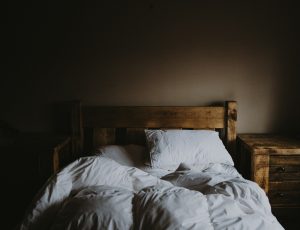This is a question I’m often asked and Trevor Eddoll has written this article which is a great read and may answer any questions or doubts you may have about online sessions.
Since the Coronavirus pandemic started, hypnotherapists have moved to online working only – this means using things like Zoom or WhatsApp for video calls or simply talking on the phone. The worry that many potential customers (for this kind of therapy) have is whether online hypnotherapy works as well as actually sitting in the same room as your therapist. Will it work if you can’t look into the eyes of the hypnotist? Will you really be able to stop smoking – or whatever change they envisage – if all you’re doing is sitting in your dining room looking at a computer screen or your phone for a couple of hours?
The good news is that the answer is ‘yes’.
On the down side, you will need to have a reliable Internet connection. And you will need to have somewhere quiet where you can speak freely and relax without interruption.
On the plus side, you save time by not needing to travel to see the therapist and get home afterwards. You also save on the cost of travel – whether that’s petrol or bus fares. And you don’t need to find somewhere to park and pay for parking. If you have mobility issues, this is a big plus. Of course, if you live in a remote area, then online therapy at any time makes life so much easier. Also, if you are worried about going outside – whether that’s because you want to continue self-isolating for a while or because you have agoraphobia – your worries disappear. It also works well for people who find it difficult to accommodate visiting a therapist into their busy lives, such as key workers on shift, parents, and full-time carers. And there’s no chance of getting someone else’s germs. So, it’s ideal for people who feel more safe-and-secure being at home rather than going out to a clinic.
Another big plus is that you can work with a therapist anywhere in the country. You’re not restricted to local therapists. So, if you wanted a solution-focused hypnotherapist because you like the idea of working that way, you can choose anyone who is qualified and on the AfSFH register https://afsfh.com/find-a-therapist– no matter where they are based. Certainly, it is always worth choosing a therapist who belongs to an accredited organization, like the Association for Solution Focused Hypnotherapy, and who is also a member of the the Complementary and Natural Healthcare Council (CNHC). The CNHC is the UK regulatory body that provides a voluntary register of complementary, rather than alternative medicine, therapists.
These days, people shop online – whether that’s Amazon, their local supermarket, and much else. They play online games. They ‘google’ plumbers and gardeners, etc. They book holidays online. So much of life is online that seeing a hypnotherapist is not that much different.
Certainly, any hypnotherapist will tell you that the number of people asking about online hypnotherapy is growing
Enquiries for online hypnotherapy sessions are growing in popularity. And online hypnotherapy can be very easy to access, even for people who previously might have described themselves as not very IT savvy. The technology, using Zoom and similar products, makes it all very straightforward and nothing to worry about. Most of the online meeting technologies are encrypted, so the communication and the whole session remain private and confidential.
You also need to ensure that the technology works at your end, ie there is a high-speed broadband link, and the camera and speakers on your laptop or phone will work in a therapy situation. Your therapist will probably test this before the first session. In the event of something going wrong, eg a power cut, the phone line being disrupted, or anything else, it’s a good idea to have a phone near you that the therapist can call. But if you don’t have these things, then you can simply talk on the phone. For online/phone sessions, payment must usually be made before each session starts. You will be given bank details in plenty of time to transfer the payment.
 Since the lockdown started, many people have enjoyed online hypnotherapy, and there is plenty of anecdotal evidence of how well it works, but some people are still looking for evidence that an online therapy session is as good as a face-to-face session. The good news is that there is already some clinical evidence of the efficacy on online hypnotherapy. For example, there’s a 2014 study entitled Internet-based versus face-to-face cognitive behavioural intervention for depression: A randomized controlled non-inferiority Internet-based versus face-to-face cognitive-behavioural intervention for depression: A randomized controlled non-inferiority trialtrialhttps://www.sciencedirect.com/science/article/abs/pii/S0165032713005120 and published in the Journal of Affective Disorders. It found that treating depression using an Internet-based intervention is equally beneficial as regular face-to-face therapy. The study also reported: “However, more long-term efficacy, indicated by continued symptom reduction three months after treatment, could only be found for the online group.” Similarly, a 2018 study entitled, “SKYPE HYPNOTHERAPY FOR IRRITABLE BOWEL SYNDROME: Effectiveness and Comparison with Face-to-Face Treatment” https://www.tandfonline.com/doi/full/10.1080/00207144.2019.1553766 and published in the Journal of Clinical and Experimental Hypnosis said: “This study shows that Skype hypnotherapy is highly effective in refractory IBS”.
Since the lockdown started, many people have enjoyed online hypnotherapy, and there is plenty of anecdotal evidence of how well it works, but some people are still looking for evidence that an online therapy session is as good as a face-to-face session. The good news is that there is already some clinical evidence of the efficacy on online hypnotherapy. For example, there’s a 2014 study entitled Internet-based versus face-to-face cognitive behavioural intervention for depression: A randomized controlled non-inferiority Internet-based versus face-to-face cognitive-behavioural intervention for depression: A randomized controlled non-inferiority trialtrialhttps://www.sciencedirect.com/science/article/abs/pii/S0165032713005120 and published in the Journal of Affective Disorders. It found that treating depression using an Internet-based intervention is equally beneficial as regular face-to-face therapy. The study also reported: “However, more long-term efficacy, indicated by continued symptom reduction three months after treatment, could only be found for the online group.” Similarly, a 2018 study entitled, “SKYPE HYPNOTHERAPY FOR IRRITABLE BOWEL SYNDROME: Effectiveness and Comparison with Face-to-Face Treatment” https://www.tandfonline.com/doi/full/10.1080/00207144.2019.1553766 and published in the Journal of Clinical and Experimental Hypnosis said: “This study shows that Skype hypnotherapy is highly effective in refractory IBS”.
So, the anecdotal and the experimental evidence go to show that online hypnotherapy is definitely as good as the face-to-face version, and may, in some cases, be better! If you had concerns about giving it try, join the hundreds of people who are already benefitting from online hypnotherapy and let it help you.
Trevor is Head of IT & Social Media for the Association for Solution Focussed Hypnotherapy which I am  also a member of .
also a member of .
If you are interested in finding out more please
contact me on 07516 962361 or email info@louisebarneshypnotherapy.co.uk


 ething that can be greatly improved by hypnotherapy. Hypnotherapy can help you learn how to relax and go to sleep, and stay asleep, to calm down the part of your mind that is wide awake and worrying during the night when you are trying to sleep, it will also help to regulate your sleep patterns.
ething that can be greatly improved by hypnotherapy. Hypnotherapy can help you learn how to relax and go to sleep, and stay asleep, to calm down the part of your mind that is wide awake and worrying during the night when you are trying to sleep, it will also help to regulate your sleep patterns.
